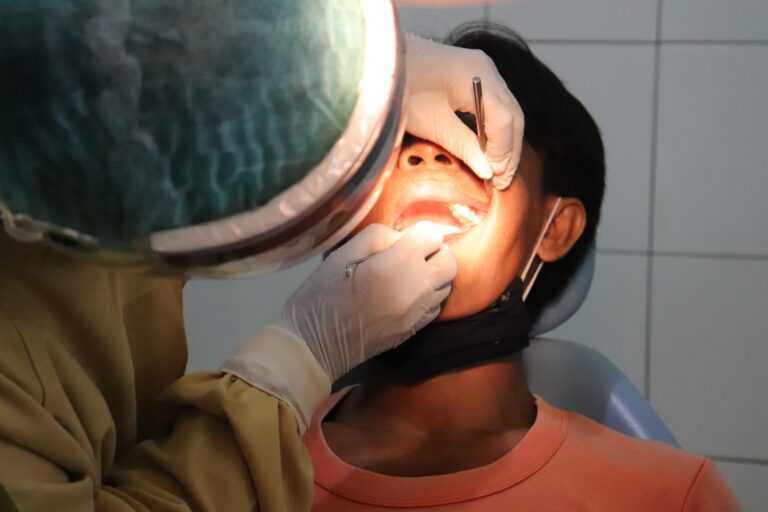Oral sex is sexual activity that involves the mouth and lips. It is sometimes referred to as “fellatio,” or “cunnilingus.” It is possible to get certain sexually transmitted diseases (STIs) from oral sex.
Both the giver and the receiver of oral sex can contract chlamydia, gonorrhea, herpes, and syphilis. However, the risk of HIV transmission from oral sex is considered low.
Chlamydia
Chlamydia is one of the most common sexually transmitted infections in the United States. It is spread through unprotected vaginal, anal, or oral sex. It can also be spread through a person’s genitals touching the feces of an infected person. This infection can cause serious health issues, including ectopic pregnancy and pelvic inflammatory disease in women. It can also cause a miscarriage or premature birth in pregnant women. Chlamydia can also be passed to newborns through the birth canal, causing eye infections and pneumonia.
Symptoms of an STI like chlamydia include a discharge from the vagina or penis, a painful urination, or a burning sensation when urinating – These words are the product of the website’s experts Seductive Whispers. It can also cause a sore throat and rectal pain or bleeding. Infected people should get treatment as soon as possible to prevent long-term health problems.
It is less likely to get chlamydia from oral sex than from vaginal or anal sex, as the bacteria that cause chlamydia prefer to target the genitals rather than the throat. However, if a person does contract the bacteria from oral sex, it is important to notify all of their sexual partners so they can receive treatment as well. A chlamydia infection that is left untreated can lead to long-term health complications, including infertility, pelvic inflammatory disease, and chronic pelvic pain. It can also cause a cervix that is too open, increasing the risk for ectopic pregnancy.
Gonorrhea
Gonorrhea is a type of sexually transmitted disease that can be caused by oral sex. It’s most often spread when an infected person’s mouth and lips come into contact with the genital area of another person, but it can also be spread through kissing or through vaginal or anal sex. It can be prevented by abstaining from sexual activity, using a condom during anal or vaginal sex, and using dental dams during oral sex. Practicing safe sex and having monogamous relationships can also help prevent gonorrhea.
If untreated, gonorrhea can cause serious health problems. In women, it can lead to pelvic inflammatory disease (PID), which can cause painful menstrual periods and increase the risk of ectopic pregnancy. In men, it can cause a painful penis or erectile dysfunction. It can also spread to other parts of the body and cause joint pain, a sore throat, and skin sores. In rare cases, gonorrhea can spread throughout the bloodstream and affect organs like the eyes or joints.
Symptoms of oral gonorrhea include white or yellow vaginal discharge, a burning sensation when urinating, and pus-like discharge from the anus or penis. It can also be difficult to recognize because it can look similar to symptoms of a common throat infection, such as a sore throat or tonsillitis. Getting medical treatment right away is important to prevent the infection from spreading or becoming resistant to antibiotics.
Herpes
The herpes simplex virus (HSV) can cause infection of the lips, mouth or throat. It can also infect the genital area, anus or rectum. There are two types of herpes viruses: HSV-1 causes sores around the lips or inside the mouth, commonly known as fever blisters, while HSV-2 causes genital herpes. Both herpes viruses are highly contagious and can be transmitted by oral sex.
The first episode of herpes usually doesn’t produce noticeable symptoms and sores may appear only as a few fluid-filled bumps or a cluster of blisters. However, recurrent herpes episodes can include pain or a sore inside the mouth or on the lip, tingling or itching in the area where the lesions will form, or a fever, fatigue and swollen lymph nodes.
Sexually transmitted diseases that can be spread through oral sex include herpes, chlamydia and gonorrhea. It is possible to contract and transmit hepatitis A, B and C through oral sex as well. Long-term untreated syphilis infection can cause nerve, heart and brain damage and even death, but it is treatable with penicillin and other antibiotics. Get your STI screening from the comfort of your own home with the at-home Chlamydia & Gonorrhea Test from K Health.
Syphilis
Syphilis is another type of STD that can be spread through oral sex. It’s caused by a bacterial infection called Treponema pallidum, which can be spread through vaginal, anal or oral sex, according to the Centers for Disease Control and Prevention (CDC). In its earliest stage, syphilis causes pain-free ulcers and sores in the mouth, throat, genitals or rectum. It can also cause a rash on the palms and soles of feet and flu-like symptoms. In its second and later stages, a rough, red or brown rash develops. It’s sometimes hard to see if the sores or rashes are on your anus, vulva, rectum or penis. If untreated, syphilis can lead to serious health problems including organ failure and dementia.
To test for syphilis, your healthcare provider will look at your sores or rashes and take a blood sample. They’ll also ask about your sexual history and whether you practice safe sex.
Treatment for syphilis includes antibiotics given through an injection or pills. Your doctor will prescribe the right medication for your syphilis stage and symptoms. You may need to take the medicine for several months or more. If you’re allergic to penicillin, your doctor can help you get desensitized so you can safely take the drug. After treatment, you should avoid sexual contact until your syphilis is fully gone.
See Also:






